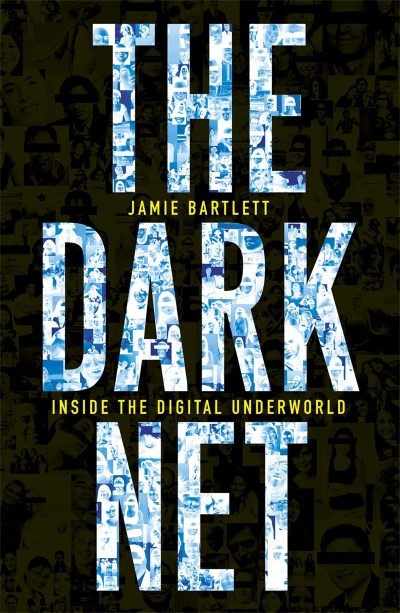From the blurb: “Beyond the familiar online world that most of us inhabit — a world of Google, Hotmail, Facebook and Amazon — lies a vast and often hidden network of sites, communities and cultures where freedom is pushed to its limits, and where people can be anyone, or do anything, they want. A world that is as creative and complex as it is dangerous and disturbing. A world that is much closer than you think.”

Bartlett is Director of the Centre for the Analysis of Social Media. His primary research interests are: new political movements and social media research and analysis, internet cultures and security and privacy online and so more than qualified to tell us about the darkest back alleys away from the information superhighway. A gripping read, more thrilling and chilling than many a fictional tale of the digital could ever be.
Footnote: As I understand it, there have been some issues brought to light since what I assume was Bartlett’s “time-of-writing” regarding various tools and techniques taken as fact at the time that are no longer necessarily valid. For instance, I don’t think the Tor (the onion router) browser and tools are necessarily as secure and private as was originally thought (although that may be due to 3rd party interactions and user errors, it’s unclear. Neither is PGP as honourable as it once was, but who’s to know whether that’s disinformation put in place by the spooks? Indeed, there are also ongoing revelations about spying by NSA and GCHQ that put paid to some of the safe harbours for libertarians.
One minor quibble that isn’t really about the Dark Net text at all is that the idea that human communication is mostly non-verbal is wrong, that piece of Deceived Wisdom has been debunkeud repeatledly over the years.